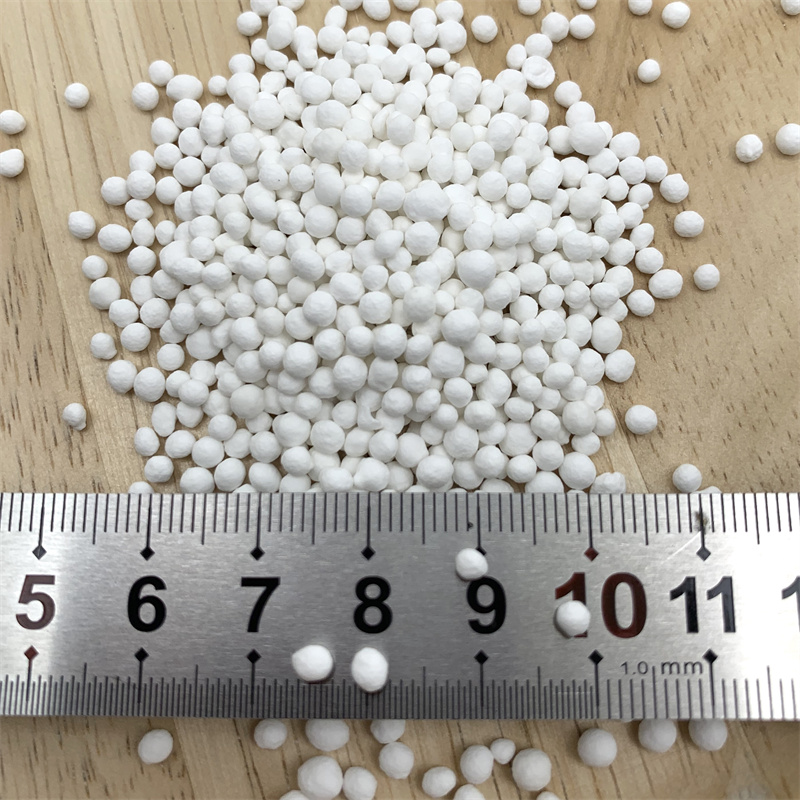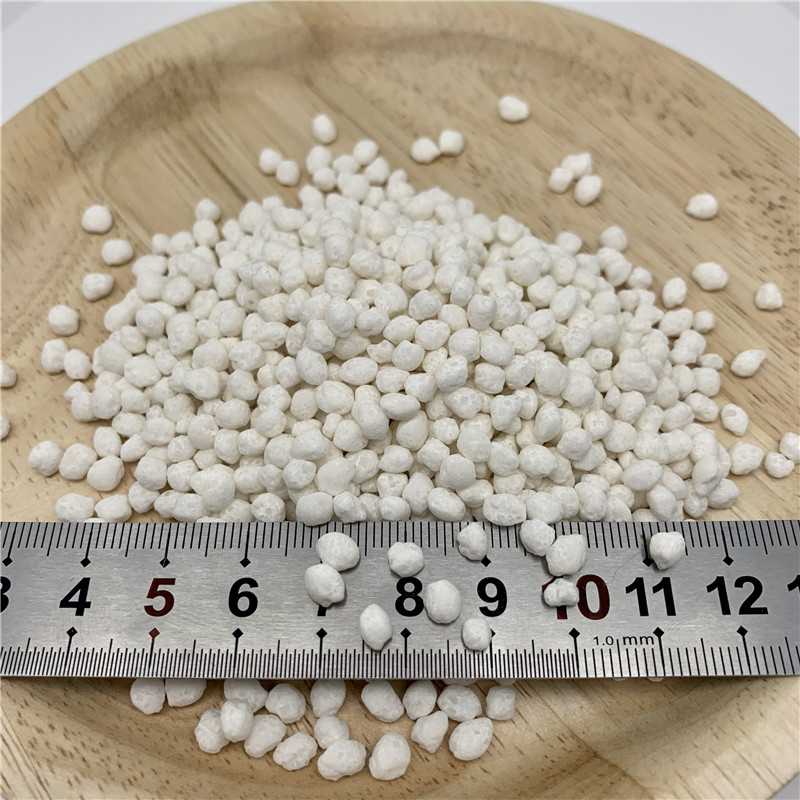Benefits, dosage, risks, and side effects
One of magnesium's most important jobs is making sure your bones are strong: 60% of the magnesium in your body is in your bones and teeth. iffco calcium nitrate 25kg price

Some studies have shown that not having enough magnesium can lead to inflammation, which can increase your risk of chronic diseases.
If you have arthritis, you're probably already familiar with bone health and inflammation. This article will go over what research says about whether magnesium is helpful for people with arthritis.
There are many types of magnesium supplements, each with potential benefits. The following forms of magnesium may help reduce arthritic inflammation and pain.
Magnesium glycinate is made by combining magnesium with glycine. Glycine is an essential amino acid with potent antioxidant and anti-inflammatory properties that is used to treat cancer, diabetes, and several inflammatory diseases.
Some evidence suggests that glycine supplementation by itself can ease several inflammatory features of rheumatoid arthritis (RA). More research is needed to study this effect in humans with RA.
Magnesium citrate is made by combining magnesium with citric acid. Citric acid is an organic compound found in citrus fruits. When combined with minerals, such as magnesium, citric acid enhances the minerals' bioavailability, increasing its absorption into the bloodstream.
Few studies have examined the effects of magnesium citrate on bone loss in people with osteoporosis. One study found that high doses of magnesium citrate (1,830 mg per day) can reduce the rate of bone loss in post-menopausal women with osteoporosis.
The results are promising, but more research is needed to determine if high doses of magnesium can be effective for preventing osteoporosis.
Magnesium malate is made by combining magnesium with malic acid. Malic acid is an organic compound found in certain fruits and wines. Binding magnesium to malic acid helps your body absorb it better. Malic acid is also known to enhance antioxidant activity, which reduces inflammation.
Malic acid is known for its ability to reduce fatigue, which is a common symptom in many types of arthritis, especially fibromyalgia .
Magnesium taurate is made by combining magnesium with taurine. Taurine is an amino acid produced naturally in the body that supports immune health and nerve function. Due to its anti-inflammatory and antioxidant effects, taurine is even being studied as a potential treatment for various inflammatory diseases, including rheumatoid arthritis and osteoarthritis.
Magnesium supplements by themselves are unlikely to prevent or cure arthritis. Nonetheless, there is strong evidence in support of magnesium for treating arthritis-related inflammation and pain and reducing arthritis complications in the future.
The progressive breakdown of cartilage (connective tissue that protects joints and bones) is a distinguishing feature of osteoarthritis (OA).
Adequate magnesium levels prevent cartilage breakdown and prevent cytokine storms, which are inflammatory immune responses in which the body attacks its own cells and tissues, including cartilage.
Some researchers believe that magnesium may be so effective at protecting cartilage that the mineral could even be used as a clinical treatment for OA.
Having enough magnesium in your body is necessary for bone density and bone development. This is important since people with certain types of arthritis have a higher risk of bone breaks (fractures).
Some research has shown that magnesium might help lower the risk of arthritis and bone fractures. For example, one study called the "Osteoarthritis Initiative" found that women who meet the recommended daily intake (RDI) for magnesium are approximately 27% less likely to experience fragility fractures in the future.
Arthritis causes inflammation in the body. Magnesium is known to reduce inflammation. Research has shown that the mineral may help people with inflammatory forms of arthritis.
Rheumatoid arthritis (RA) is an inflammatory and autoimmune disease. It affects the joints in the knees, wrists, and hands. People with RA often have chronic pain.
When RA affects the joints, they become inflamed. The inflammation can damage joint tissue over time. The lungs, heart, and eyes can also be affected by RA.
One study found that women who had higher amounts of magnesium in their diets were less likely to get RA. This could be because magnesium has anti-inflammatory properties.
Magnesium supplements are commonly used in clinical practice for easing acute and chronic muscle pain. Specifically, magnesium is thought to relax muscles and nerves and reduce pain intensity.
Magnesium deficiency is closely linked to muscle pain, fatigue, sleep difficulties, and anxiety, all of which are common symptoms of fibromyalgia. A small body of research supports the use of magnesium for fibromyalgia pain.
One such study showed that people with fibromyalgia who took 300 mg of magnesium per day had reduced "tender points" after eight weeks. More research is needed to confirm these results.
Magnesium is crucial for a healthy immune system, as it improves your white blood cells' ability to find and fight germs. Additionally, low magnesium levels can trigger cytokine storms.
Cytokine storms are thought to play a key role in the development of various autoimmune diseases, including rheumatoid arthritis.
Many Americans do not get enough magnesium in their diets. Studies have shown that about 75% of women consume less than the recommended dietary allowance (300 mg/day) of magnesium.
If you don't get enough magnesium in your diet, you can become deficient. There are also other factors that can lead to magnesium deficiency, including:
Signs of magnesium deficiency include:
The National Institutes of Health (NIH) sets recommendations for daily intake of different nutrients, including magnesium.
There are no official recommendations for how much magnesium to take specifically to relieve joint pain. But, since around half of Americans consume less than the RDI for magnesium, ensuring you meet the RDI for your age is a great place to start.
If you have too much magnesium in your blood it's called hypermagnesemia . Having too much magnesium in the body can cause side effects.
Symptoms of having too much magnesium include:
The body needs magnesium to function. Many parts of the body, from the nerves to the bones, need magnesium to work.
One of the things magnesium can do is reduce inflammation. For this reason, it might help some people with certain kinds of arthritis.
Magnesium can come from foods and/or supplements. Being deficient in magnesium can cause symptoms, but so can having too much magnesium.
Uwitonze AM, Razzaque M. Role of magnesium in vitamin D activation and function. J Am Osteopath Assoc. 2018 Mar;118(3):181-189. doi:10.7556/jaoa.2018.037
Nielsen FH. Magnesium deficiency and increased inflammation: current perspectives. J Inflamm Res. 2018;11:25-34. doi:10.2147/JIR.S136742
Razak MA, Begum PS, Viswanath B, Rajagopal S. Multifarious beneficial effect of nonessential amino acid, glycine: A review. Oxid Med Cell Longev. 2017 Mar;2017(1):1716701. doi:10.1155/2017/1716701
Kappeler D, Heimbeck I, Herpich C, et al. Higher bioavailability of magnesium citrate as compared to magnesium oxide shown by evaluation of urinary excretion and serum levels after single-dose administration in a randomized cross-over study. BMC Nutr. 2017 Jan;3(7):1-12. doi:10.1186/s40795-016-0121-3
Koriem K, Tharwat H. Malic acid improves behavioral, biochemical, and molecular disturbances in the hypothalamus of stressed rats. J Integr Neurosci. 2023 Jul;22(4):98. doi:10.31083/j.jin2204098
Qiang F. Effect of malate-oligosaccharide solution on antioxidant capacity of endurance athletes. Open Biomed Eng J. 2015 Oct;9(1):326–329. doi:10.2174/1874120701509010326
Schaffer S, Kim HW. Effects and mechanisms of taurine as a therapeutic agent. Biomol Ther (Seoul). 2018 May;26(3):225-241. doi:10.4062/biomolther.2017.251
Li G, Cheng T, Yu X. The impact of trace elements on osteoarthritis. Front Med (Lausanne). 2021 Dec;8(1):771297. doi:10.3389/fmed.2021.771297
National Institutes of Health. Magnesium.
Veronese N, Stubbs B, Solmi M, et al. Dietary magnesium intake and fracture risk: data from a large prospective study. BJN. 2017 Jun;117(11):1570-1576. doi:10.1017/S0007114517001350
Shahi A, Aslani S, Ataollahi M, Mahmoudi M. The role of magnesium in different inflammatory diseases.Inflammapharmacology.2019 Jun;27(1):649–661.doi:10.1007/s10787-019-00603-7
Centers for Disease Control. Joint pain and rheumatoid arthritis.
Hu C, Zhu F, Liu L, Zhang M, Chen G. Relationship between dietary magnesium intake andrheumatoid arthritis in US women: a cross-sectional study. BMJ Open. 2020;10(11):e039640. doi:10.1136/bmjopen-2020-039640
Morel V, Pickering ME, Goubayon J, Djobo M, Macian N, Pickering G. Magnesium for pain treatment in 2021? State of the art. Nutrients. 2021 Apr;13(5):1397. doi:10.3390/nu13051397
Boulis M, Boulis M, Clauw D. Magnesium and fibromyalgia: A literature review.JPCCH.2021;12(1).doi:10.1177/21501327211038433
Saint Luke's. New research suggests magnesium and vitamin D can help reduce COVID-19 infections.
Marcuzzi A, Melloni E, Zauli G, et al. Autoinflammatory diseases cytokine storms—imbalances of innate and adaptive immunity. Int J Mol Sci. 2021 Oct;22(20):11241. doi:10.3390/ijms222011241
John A, Sewell CL. Rapid resolution of chronic back pain with magnesium glycinate in a pediatric patient. J Pain Relief. 2012;01(01). doi:10.4172/2167-0846.1000101.
DiNicolantonio J, O'Keefe J, Wilson W. Subclinical magnesium deficiency: A principal driver of cardiovascular disease and a public health crisis. Open Heart. 2018 Jan;5(1):e000668. doi:10.1136/openhrt-2017-000668
By Yvelette Stines Yvelette Stines, MS, MEd, is an author, writer, and communications specialist specializing in health and wellness.
Thank you, {{form.email}}, for signing up.
There was an error. Please try again.

magnesium nitrate fertilizer By clicking “Accept All Cookies”, you agree to the storing of cookies on your device to enhance site navigation, analyze site usage, and assist in our marketing efforts.